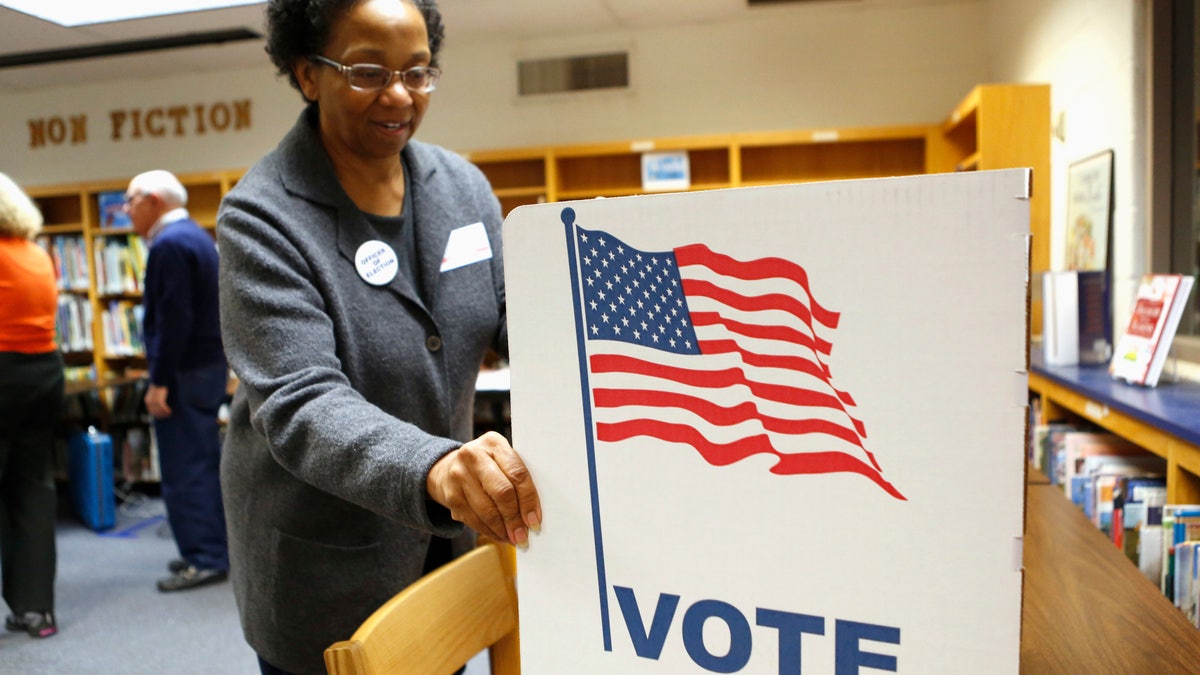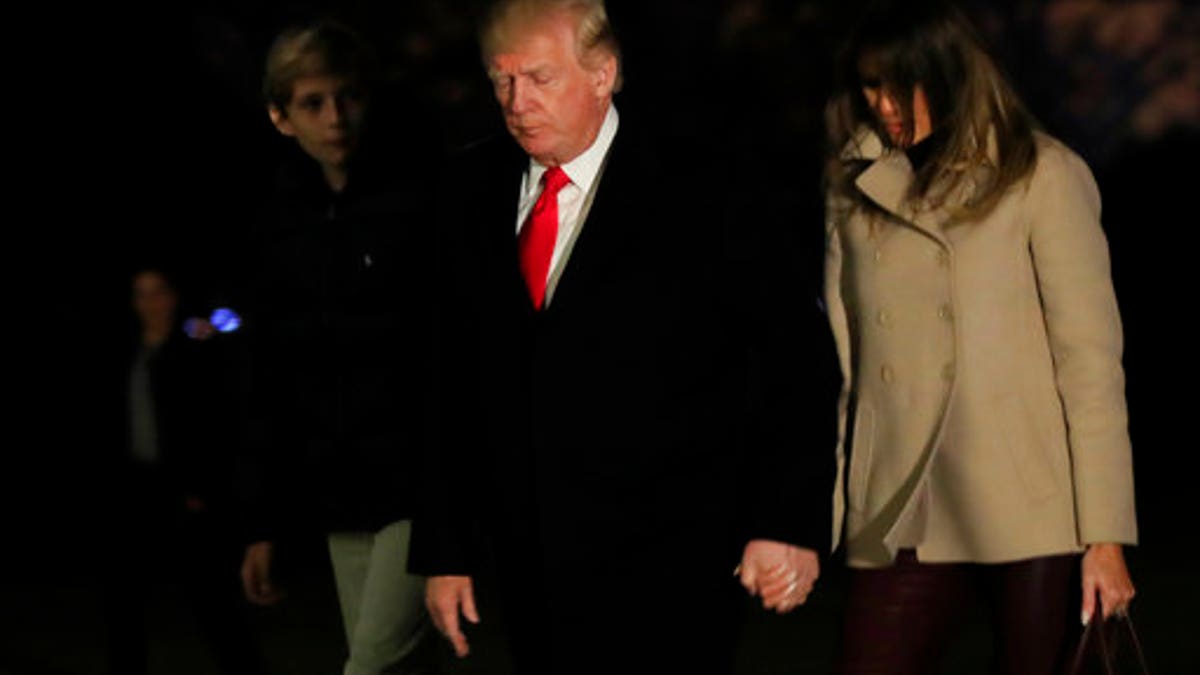
Nov. 5, 2013: An election worker sets up a voting booth in the library of Spring Hill Elementary School, which is being used as a polling station in McLean, Virginia. (REUTERS)
President Trump announced late Wednesday that he had disbanded his controversial "election integrity" commission and blamed a refusal by more than a dozen states to provide what he called "basic information."
"Rather than engage in endless legal battles at taxpayer expense, today President Donald J. Trump signed an executive order to dissolve the Commission, and he has asked the Department of Homeland Security to review its initial findings and determine next courses of action," White House press secretary Sarah Sanders said in a statement.
The commission, led by Vice President Mike Pence and Kansas Secretary of State Kris Kobach, had asked all 50 states and the District of Columbia to hand over reams of personal voter data, including voters' names, voting histories and party affiliations.
Multiple states -- including Virginia, Kentucky, and California -- as well as D.C. declined to comply with the commission's requests.
Trump, during the commission's first meeting, questioned the motives of states that refused to comply with the commission's requests, suggesting they had something to hide. The president had alleged, without evidence, that 3 million to 5 million people voted illegally in the 2016 election, delivering the popular vote to his Democratic rival, Hillary Clinton. Clinton received 2.8 million more votes than Trump nationwide.
Kobach characterized the decision to dissolve the bipartisan group as a "tactical change" and argued DHS can pursue an investigation of election fraud more quickly and efficiently.
"The Democrats, both on and off the commission, made very clear that they were not interested in determining the scope and extent of voter fraud and, indeed, they were trying to stop the commission in its tracks," Kobach said. "The Democrats lost their opportunity, lost their seat at the table, by stonewalling."

"Rather than engage in endless legal battles at taxpayer expense, today President Donald J. Trump signed an executive order to dissolve the Commission," the White House said. (AP Photo/Manuel Balce Ceneta, File)
Kobach, a conservative Republican and vocal supporter of tough voter ID laws, alleged Democrats wanted no investigation. "Their motto is, 'Nothing to see here,"' he said.
The requests drew heavy criticism from privacy advocates, as well as civil and voting-rights groups who maintain that there is no definitive evidence of widespread voter fraud in the United States.
One of the members of the commission, Maine Secretary of State Matthew Dunlap, sued the commission in federal court, alleging it had violated federal law by refusing to provide him documents available to other members, among other charges.
Three Democratic senators -- Michael Bennet of Colorado, Cory Booker of New Jersey and Amy Klobuchar of Minnesota -- had also asked the U.S. Government Accountability Office to investigate the commission, which it agreed to do in October.
While there have been isolated cases of people voting illegally, and many voter rolls often contain outdated data, there is no evidence voter fraud is a widespread problem in the United States or has impacted election results.
A study by a Loyola Law School professor found that out of 1 billion votes cast in all American elections between 2000 and 2014, there were only 31 known cases of impersonation fraud.
Critics also viewed the commission as an attempt to distract from the ongoing investigations into Russian election meddling and allegations of collusion between Moscow and Trump campaign aides. The intelligence community concluded that the Russian government mounted a campaign to help Trump win.
Voter advocacy groups and Democrats applauded Wednesday's decision.
"The commission never had anything to do with election integrity," Senate Minority Leader Chuck Schumer, D-N.Y., said in a statement. "It was instead a front to suppress the vote, perpetrate dangerous and baseless claims, and was ridiculed from one end of the country to the other.
"It is no surprise that a commission founded on a lie of widespread voter fraud proved to be a fraud itself," said California Secretary of State Alex Padilla, a Democrat, who had refused to comply with the commission's request for voter data. "No taxpayer dollars should have been wasted on Mr. Trump's voter suppression crusade."
Dale Ho, director of the American Civil Liberties Union Voting Rights Project, accused the commission of engaging in "a wild-goose chase for voter fraud, demonizing the very American voters whom we should all be helping to participate -- with the not-so-secret goal of making voting harder with unnecessary barriers.
"President Trump has tried and failed to spread his own fake news about voter fraud," Ho said.
The Associated Press contributed to this report.





















